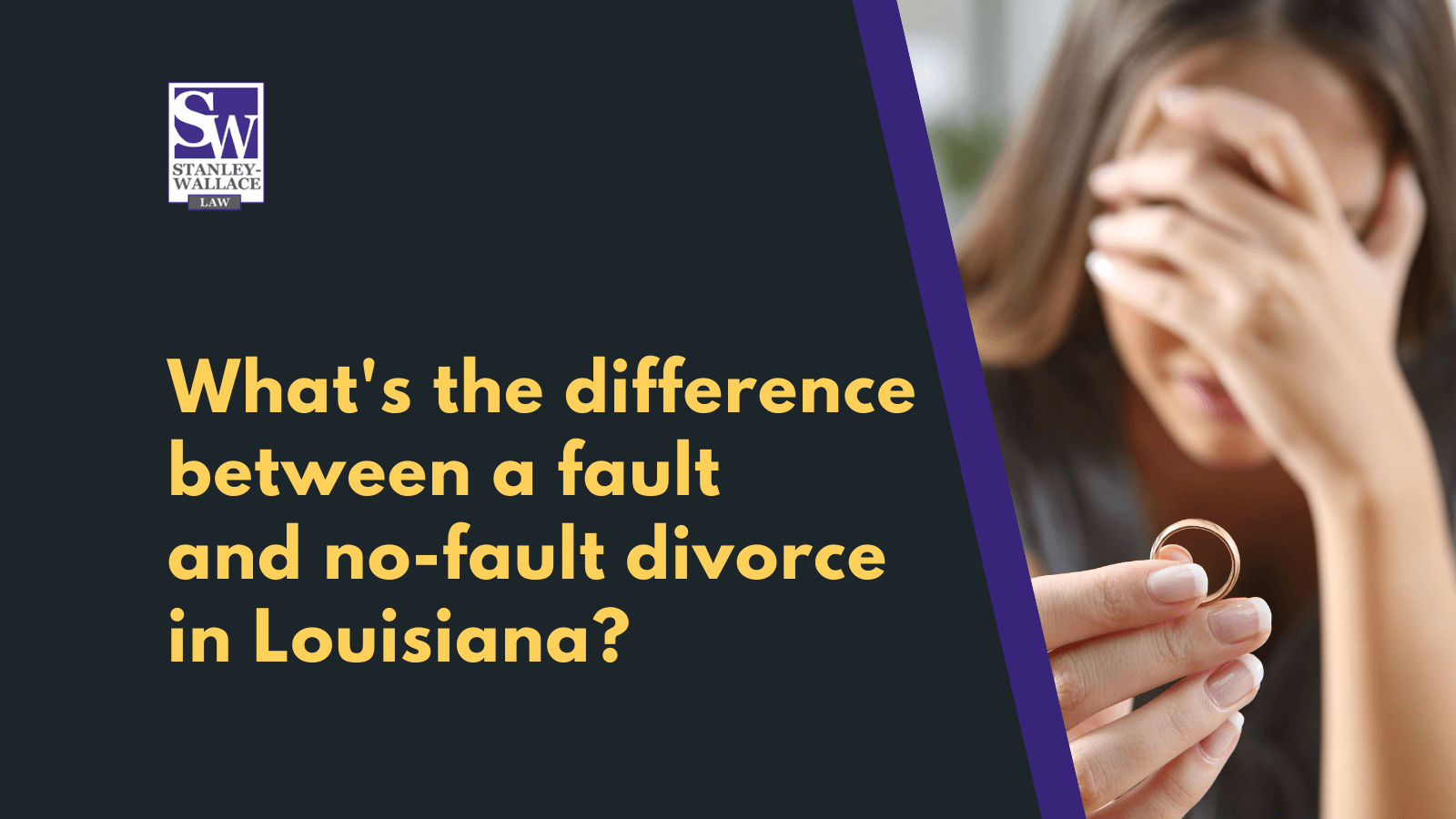There are two types of divorces in Louisiana: fault and no-fault.
In a fault divorce, one of the spouses did something wrong that made the marriage fail. Meanwhile, in a no-fault divorce, neither party did anything that was necessarily wrong, and the marriage merely failed on its own.
When you file for a divorce, you have to decide which of these two types that you want to file, as it will have a big impact on the case. So how are these divorce processes different?
FAULT DIVORCE
When filing for a fault divorce, the person filing the claim must prove that the spouse committed an action that destroyed the marriage. Actions that can justify a fault divorce may include:
- Felony conviction
- Adultery
- Physical or sexual abuse of the spouse or child
If a divorce is proven to be a fault divorce, then the court could rule against the at-fault spouse when dealing with questions of any of the following:
- Final spousal support
- Final divorce
- In certain circumstances, child custody of visitation rights
This is why it’s important to know the difference between fault and no-fault divorces. The decision of whether or not to file a fault divorce versus a no-fault one has a profound impact on how the divorce proceedings will go, as well as the future of both parties after the divorce.
NO-FAULT DIVORCE
Most divorces filed in Louisiana are filed as no-fault divorces, meaning that the couple is merely unable to continue to make the marriage work.
When filing for a no-fault divorce in Louisiana, a couple must have been living apart from each other for an extended period of time.
If the couple has a child together, then they must have been separated for at least a year. If there is no child involved in the marriage, then the couple must have been separated for at least six months.
These time periods (one year or six months) have to be continuous, meaning that the spouses have to live in different houses everyday for 365 or 180 days, without reconciliation. If either spouse moves back in with the other or reconciles, even temporarily, the calendar resets back to 0 days, and the necessary time period starts over.
CONTACT STANLEY-WALLACE LAW FOR DIVORCE HELP TODAY
Whether you are seeking a simple, uncontested divorce or you have a complicated and highly contested at-fault divorce, the attorneys at Stanley-Wallace Law are here to help and committed to putting you and your family first. Contact us today.


